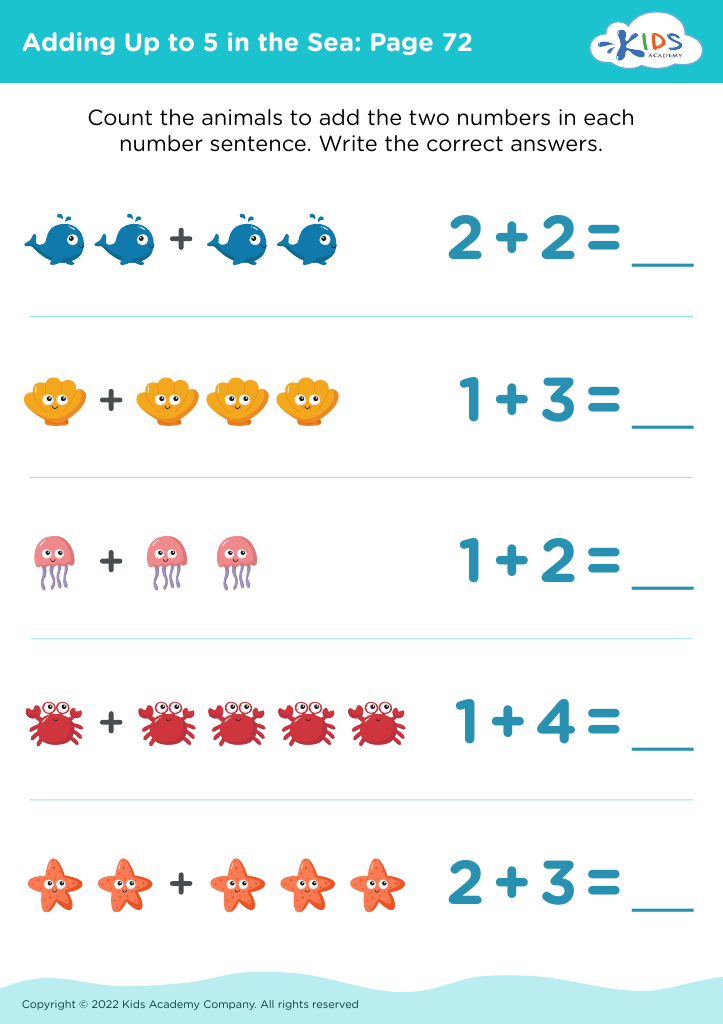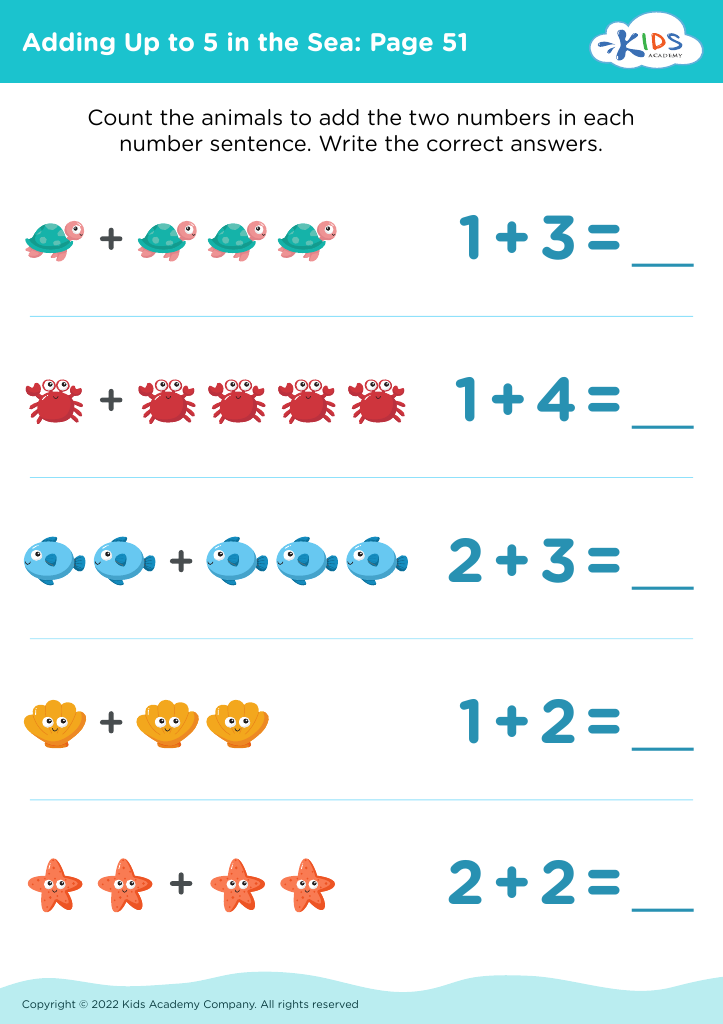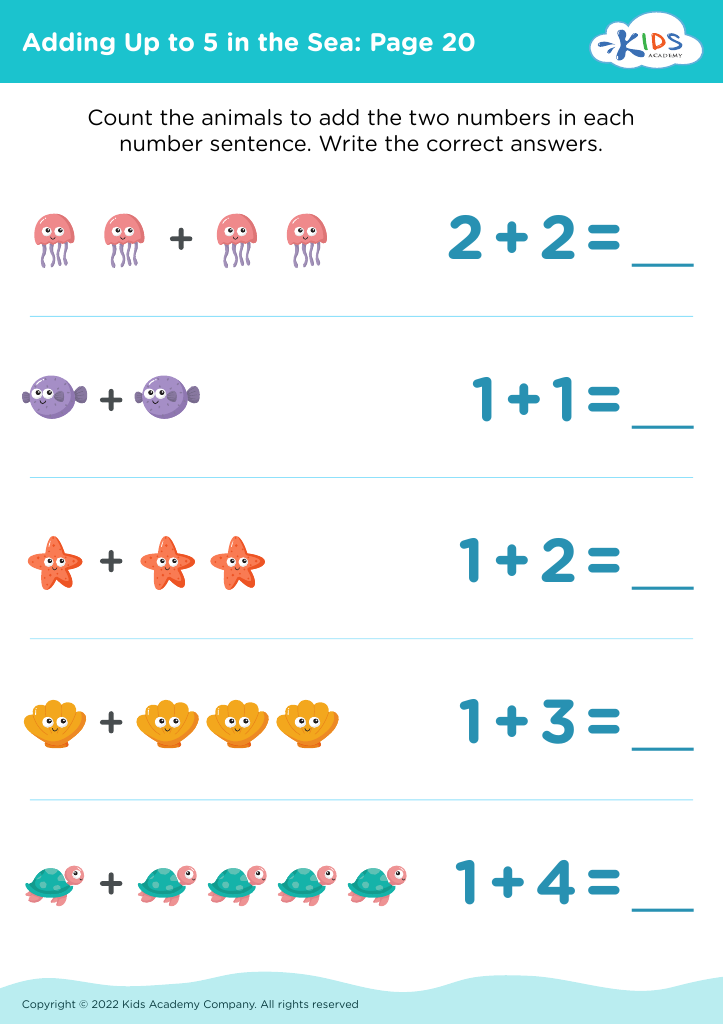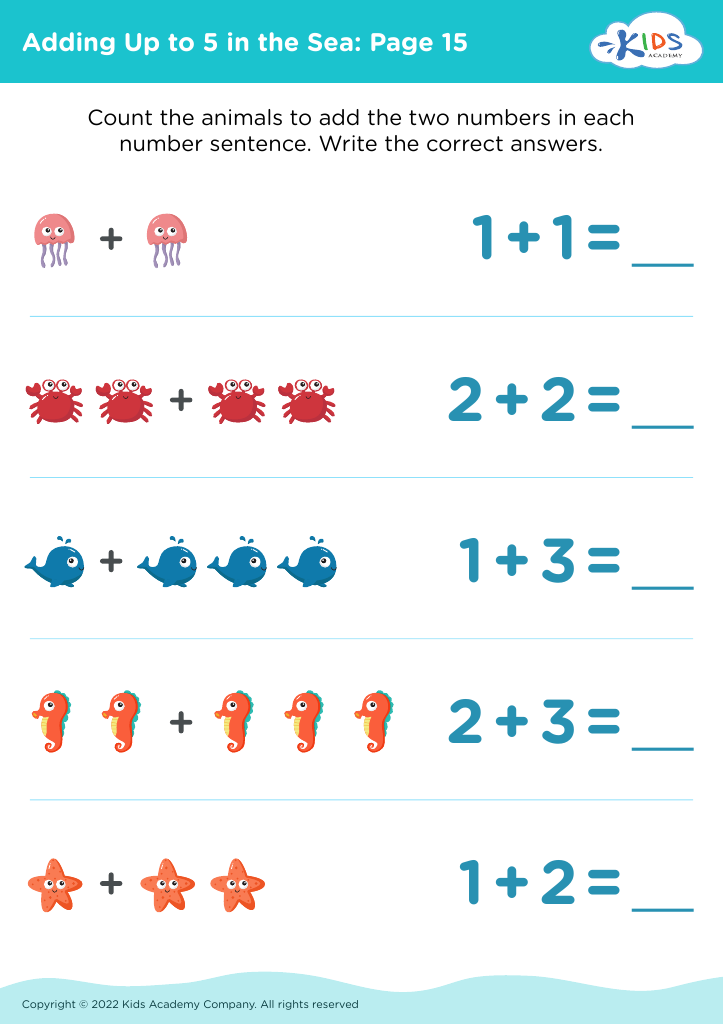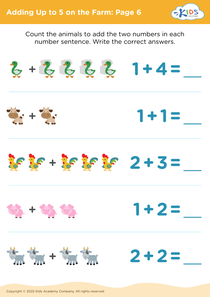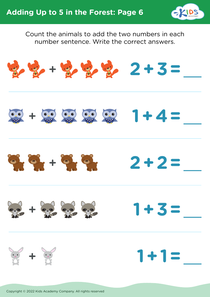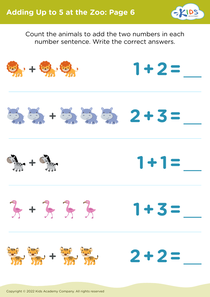Improving concentration Adding in the Sea Worksheets for Ages 3-4
4 filtered results
-
From - To
Enhance your child's focus with our "Improving Concentration: Adding in the Sea Worksheets" designed for ages 3-4. These engaging worksheets combine fun sea-themed activities with essential math skills, helping little learners practice addition while sharpening their concentration. Each activity promotes attentive learning through vibrant illustrations and interactive exercises, making math enjoyable. Our worksheets encourage kids to explore numbers in an exciting marine environment, fostering both cognitive and motor skills. Perfect for home or classroom use, these resources aim to build a strong foundation for future learning. Dive into a world of educational fun and watch your child's confidence and concentration flourish!
Improving concentration in young children, particularly when it comes to engaging activities like "Adding in the Sea," is crucial for their cognitive and social development. At ages 3-4, children are at a formative stage where their attention span begins to shape their learning experiences. Concentration aids in effective learning, allowing them to process information, solve problems, and enhance key skills such as counting and basic arithmetic.
Activities like "Adding in the Sea" integrate play with learning, promoting a joyful atmosphere where children can master basic math skills through hands-on experiences. This method also nurtures their innate curiosity about the world around them.
Furthermore, fostering concentration helps in building self-discipline and patience, leading to better behavior both in the classroom and at home. Parents and teachers who prioritize concentration through engaging activities can create effective learning environments that support children's academic success and personal growth.
In conclusion, encouraging improved concentration not only reinforces learning but also lays the groundwork for essential life skills. By investing time and resources into activities that cultivate focus, educators and caregivers can empower children to thrive academically and socially.
